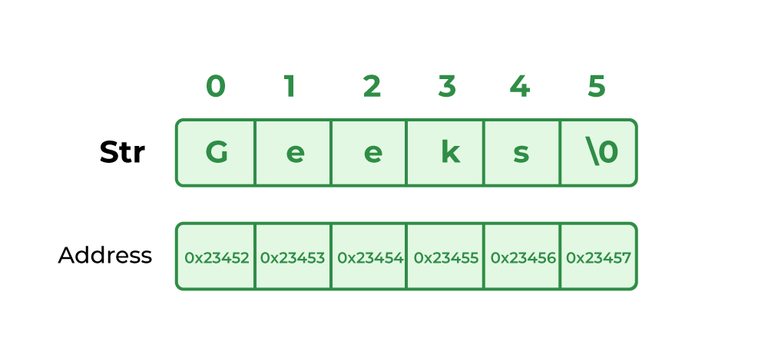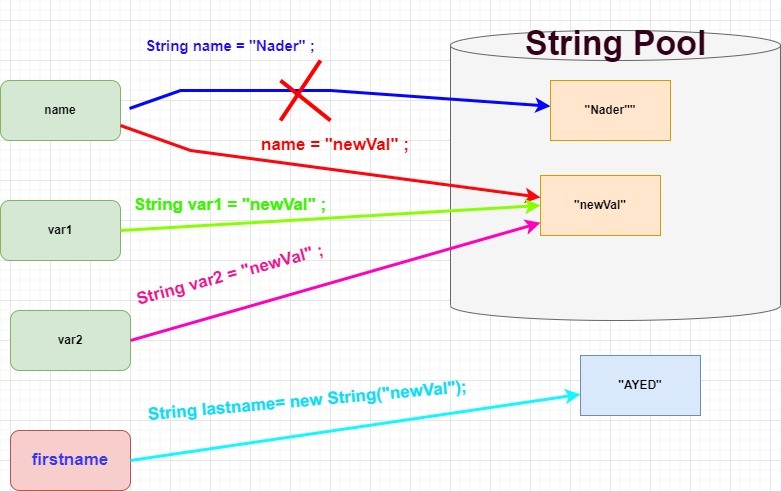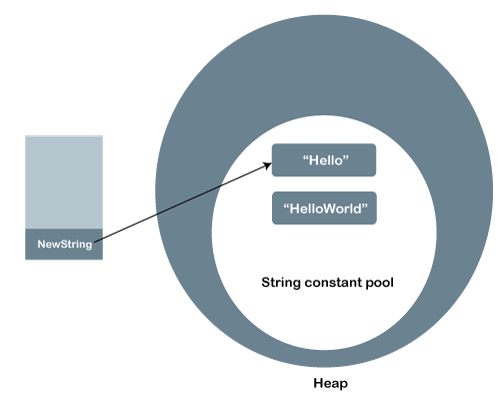Why Are Strings Immutable in Java? Safety and Efficiency Perks
Why Are Strings Immutable in Java? Safety and Efficiency Perks
Blog Article
What Is Immutable Strings and Exactly How It Works
In the realm of programs, recognizing the concept of unalterable strings is critical for developing safe and durable applications. Immutable strings refer to strings that can not be modified after they are produced, ensuring data honesty and predictability within the code.
The Fundamentals of Immutable Strings
Unalterable strings, as a fundamental idea in shows, are character sequences that can not be transformed when they are created. This suggests that as soon as a string is assigned a worth, that worth can not be altered. In languages like Python and Java, strings are immutable items, resulting in numerous ramifications in terms of memory management and data honesty.
One of the vital benefits of immutable strings is that they supply a complacency in information control. Considering that the web content of an immutable string can not be changed, it makes certain that the initial data remains intact, decreasing the threat of unintentional changes throughout program implementation (Why are strings immutable in Java?). This residential property also streamlines debugging procedures, as developers can rely on that once a string is specified, its value will not be accidentally modified
Additionally, immutable strings help with efficient memory use. When a new string is developed based upon an existing one, as opposed to changing the original string, the brand-new worth is stored separately. This method enhances performance by minimizing memory fragmentation and simplifying memory allotment procedures. Overall, comprehending the essentials of unalterable strings is vital for mastering programming principles and maximizing code effectiveness.
Benefits of Immutable Strings
Building upon the safety and effectiveness benefits of unalterable strings, their advantages encompass improving code reliability and streamlining simultaneous shows tasks. By being unalterable, strings can not be modified after production, which eliminates the danger of unintended adjustments in the data they keep. This inherent immutability makes certain that once a string is produced, its worth stays consistent throughout the program's execution, reducing the chances of bugs triggered by unexpected alterations.
In addition, immutable strings add to code reliability by making it much easier to reason concerning the state of a program. Considering that strings can not be changed, designers can rely on that a string will certainly constantly hold the exact same worth, simplifying debugging and upkeep initiatives. This predictability causes a lot more steady and trustworthy codebases.

Execution in Programs Languages
Within various shows languages, the incorporation of unalterable strings is a basic facet that affects how information is managed and manipulated within code structures. The execution of unalterable strings varies throughout various programs languages, with each language using its own mechanisms to sustain this concept.

On the other hand, languages like C and C++ do not have integrated support for unalterable strings. Designers in these languages have to manually apply immutability by implementing rules within their code to prevent direct modifications to string objects.
Finest Practices for Dealing With Unalterable Strings
When taking care of unalterable strings in programming languages like Java and Python, adhering to finest practices guarantees reliable and protected information manipulation. Among the key ideal practices is to use StringBuilder or StringBuffer rather than straight manipulating strings, especially when handling extensive concatenation operations. These classes provide mutable alternatives for string adjustment, aiding to prevent unneeded memory allotments and boosting efficiency.
An additional finest method is to utilize string interpolation or format works supplied by the language rather than hands-on concatenation. This not just boosts readability yet additionally help in protecting against usual pitfalls such as unintentional string modifications. In addition, when working with sensitive information such as passwords or API keys, it is essential to prevent keeping them as ordinary message in unalterable strings. Utilizing secure storage devices like char selections or specialized libraries for dealing with sensitive info aids alleviate protection threats associated with immutable strings.
Real-world Applications and Instances
Exploring practical implementations of unalterable strings in different sectors discloses their considerable effect on information integrity and system dependability. In the healthcare market, immutable strings play a vital duty in making certain the protection and privacy of patient data. By protecting against unauthorized alterations to sensitive details such Source as medical records and prescriptions, immutable strings help preserve conformity with rigorous personal privacy policies like HIPAA.
Economic organizations also gain from the unalterable nature of strings to boost the safety of customer information and purchase documents. Immutable strings aid protect against scams go to the website and unauthorized changes to economic details, providing a durable defense against cyber dangers and making sure the trust fund and self-confidence of clients.

Conclusion
Ideal techniques for functioning with unalterable strings include preventing direct modifications and using approaches that return brand-new string objects. Real-world applications of immutable strings include information security, caching, and string adjustment tasks.
Immutable strings refer to strings that can not be changed after they are created, making sure information integrity and predictability within the code. When a new string is created based on an existing one, rather than customizing the initial string, the new worth is stored independently.In languages like Java and Python, strings are unalterable by default, indicating that once a string object is developed, its worth can not be altered - Why are strings immutable in Java?. Ideal methods for functioning with unalterable strings include preventing direct adjustments and using techniques that return brand-new string objects. Real-world applications of unalterable strings include data file encryption, caching, and string manipulation jobs
Report this page